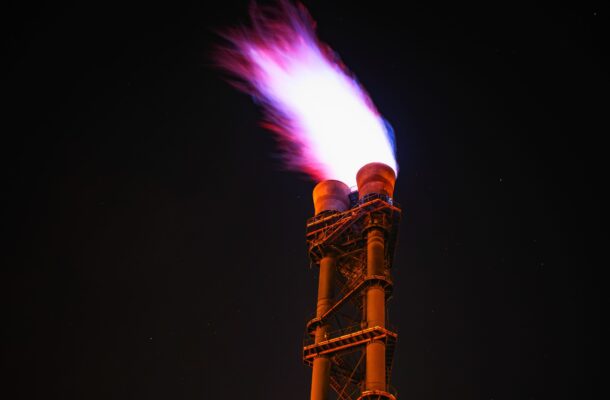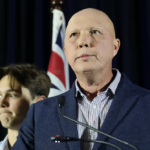Gas flows under pressure

They’re as Pious as a Priest in a Prius. But the Australian Greens don’t yet seem to grasp that effective environmental stewardship depends on corresponding progress in justice, public health, education, trade, security, indigenous and international relations, social and economic wellbeing, etc.
The Greens and others forced the state government of Victoria to reject a plan by AGL to establish a floating LNG (gas) import terminal at Crib Point in Westernport. Planning Minister Wynne said “this is the right outcome for the local community, the environment and Victoria as a whole.”
Objectors contended that the gas terminal would threaten the Westernport coastline which is a Ramsar-listed wetland and home to rare marine life and migratory birds. However, the proposed ‘Star of the South’ offshore windfarm east of Wilson’s Promontory would be situated adjacent to Corner Inlet which is also listed under the international Ramsar Convention.
The area includes habitat for numerous species of plants, animals and fish but is especially important for the protection of migratory birds. Strangely, there has been no concerted campaign against the windfarm.
The present obsession with climate change is partly driven by well-resourced vested interests. ‘Technological optimism’, once anathema to environmentalism, has established a belief in the possibility of unlimited and environmentally benign cheap energy, almost as an article of faith.
But just as gas expands spontaneously into a vacuum, more pressure also increases the speed of (political) reaction. Perhaps it’s because The Greens don’t have to bear the responsibility that comes with government, that leader Adam Bandt isn’t worried about the financial stress being felt by Australian families at present.
Having celebrated the closure of Hazelwood power station, Mr Bandt evidently did not consider the consequences of forcing energy policy ahead of a realistic timeline for re-employment or balancing power supply with demand. Ironically, it seems that no allowance was made for contingencies such the extreme weather which The Greens are constantly forecasting.
Over 80% of households in Victoria have a gas connection. Supply shortfalls and rising prices have resulted from regulatory failure. Gas storage and pipeline capacity are limited. Attempts to boost supplies with LNG have been frustrated by some environmentalists, regardless of the need to balance supply and demand from alternative interim energy sources.
The energy regulator (AEMO) pretends to have averted energy shortages by intervening in the market for 5 minutes. But as soon as they woke up to the amount of compensation the taxpayers would have to pay, they jumped out of the way. It’s always been obvious that renewable energy supply development would lag behind demand.
Our water bills used to be based on a stepped tariff system. The first step allowed enough water for basic needs at the lowest price. The price per set volume increased at each step according to the amount of water used.
A stepped tariff system could save a lot of electricity too. But as AEMO discovered, not only has privatisation failed to deliver the promised efficiencies and lower prices, it has put profits ahead of strategic planning in the national interest. Ultimately, it is a grave example of market failure driven by political ideology and incompetence.
With record levels of private and government debt, rising interest rates and inflation, how many people can afford to scrap their gas appliances and buy an electric vehicle? Will there be enough affordable electricity to replace gas and petroleum fuels anyway?
Transport in Australia uses about the same amount of energy as 22 Hazelwood power stations would generate running flat out 24/7. Green, virtue-signalling ideology that relies on government subsidies to bring about change will create economic injustice and more debt.
Cutting unnecessary energy consumption would relieve household financial stress and a lot of associated emissions could be avoided by giving up the illusion and pursuit of unlimited clean energy. There is no magic pudding or money tree. The ACT 100% renewables smoke and mirrors trick is eerily similar to some of Harold Lasseter’s stories. Some politicians wanted to believe in a shining Eldorado just beyond the horizon with unlimited wealth there for the taking. In the end, only history owns our misadventures.
The evolution of Political Economy to Rational Environmental Economy is inevitable and probably essential for the survival of civilization as we know it. Genuine economic reform would change the GDP money-based index into a General Progress Indicator (GPI) to include economic and environmental values and measurements of human wellbeing.
Courageous leadership is required, not popular environmentalism, to discourage rampant consumerism in favour of incentives for a less energy-intensive lifestyle.

Max Thomas, Dip. Agric. (retired) worked in the public sector and in private consulting on a range of land, water and waste management projects. He prepared guidelines for irrigation with recycled water for EPA Victoria and developed a number of Environmental Management Systems in the water industry.











